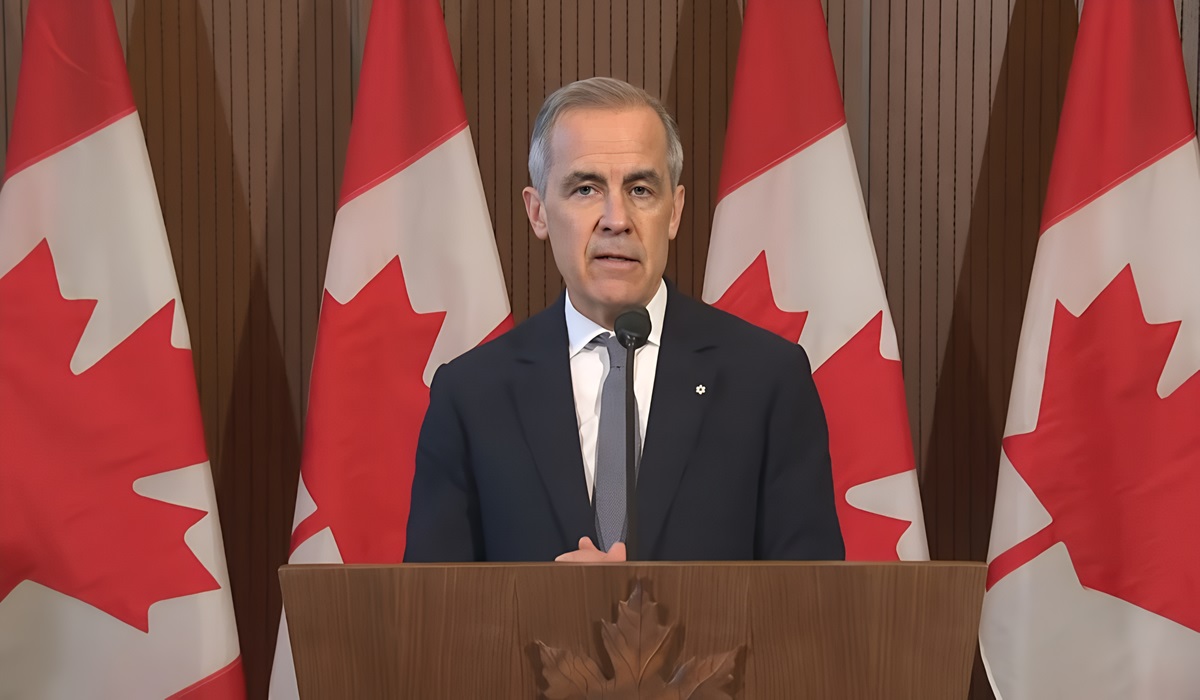Carney’s First Budget: Negotiation, Leverage, and the Likely Path to Passage
- Naomi Dela Cruz
- Canada
- September 18, 2025

Canada enters a critical political moment as Prime Minister Mark Carney prepares to table his first federal budget on November 4, 2025. With a minority Liberal government in place, much speculation has swirled about whether the budget could pass and whether it might trigger an election. But understanding the realities of parliamentary arithmetic, party dynamics, and recent electoral outcomes makes one thing clear: Carney’s government holds the cards to pass the budget, and the path forward relies less on major concessions to the Conservatives and more on strategic negotiations with smaller parties.
The New Democratic Party (NDP) occupies a central place in this equation. In the 2025 federal election, the NDP suffered a devastating loss, including the defeat of their leader, leaving the party without an official head. An interim leadership arrangement has been put in place, but the void highlights the NDP’s weakened position in Parliament. Following the election, the party made a formal request to Prime Minister Carney to consider amending the rules for official party status—a designation that comes with tangible resources, including funding, research staff, office space, and committee representation. Carney declined the request, which was widely interpreted as a strategic move to consolidate Liberal leverage.
This refusal is more than a symbolic slight. With the Liberals holding a minority, they require only a small number of supportive votes to pass their budget and other key legislation. Historically, the NDP has played a supportive role in similar circumstances, allowing minority Liberal governments to advance policy in exchange for targeted concessions. With official party status withheld, Carney now possesses a powerful bargaining tool: by offering to restore or grant official party recognition in exchange for budgetary support, the Liberals can incentivize the NDP to act as a reliable partner without needing to offer concessions to the Conservatives, who are expected to vote against any Liberal budget regardless of content.
Official party status is far more than ceremonial. It provides parties with increased financial support, staffing allocations, enhanced committee participation, and a greater ability to influence legislative procedures. For a diminished NDP, gaining or regaining this status would be transformative, providing the structural capacity to effectively operate in Parliament and advocate for its platform. Beyond procedural benefits, the Liberals could sweeten the deal by promising to resume or expand policies that are central to the NDP’s platform, including enhanced dental care, expanded pharmacare, and other progressive social programs. This combination of structural support and policy advancement positions the NDP as a logical and pragmatic partner in passing the budget.
Meanwhile, the Bloc Québécois holds another key piece of the puzzle. Focused almost exclusively on Quebec, the Bloc’s priorities are narrower and highly regionalized. Their support hinges on measures that directly benefit Quebec, such as increased federal transfer payments, region-specific social programs, or leniency in the application of federal secularism rules. By offering targeted concessions that address the Bloc’s priorities, Carney can secure votes from Quebec without fundamentally altering the national budget. Importantly, the Bloc’s goals are not geared toward destabilizing the federal government; they are pragmatic, aimed at maximizing gains for their constituents.
The Conservative Party, led by Pierre Poilievre, is expected to oppose the budget outright. Their opposition, while politically visible, does not constitute a credible threat to the budget’s passage. Poilievre’s policy demands are largely incompatible with the Liberal agenda, and any concessions that would satisfy the Conservatives would likely alienate key Liberal constituencies or contradict broader fiscal plans. As a result, the Liberals are effectively positioned to ignore the Conservatives in budget negotiations and focus on the smaller parties whose support is both attainable and strategically advantageous.
The interplay of these factors—NDP leverage, Bloc concessions, and Conservative opposition—illustrates how minority governments operate in practice. While numerical plurality may not exist, legislative authority often resides with the party that can negotiate strategic alliances and deploy parliamentary tools effectively. Carney’s Liberals can craft a budget that includes modest but targeted concessions to the NDP and Bloc, ensuring passage without compromising core policy objectives. This careful balancing act underscores the advantages of minority governance: influence is gained not through sheer numbers, but through political acumen and negotiation.
In practical terms, this likely means that the NDP will support the budget in exchange for formal recognition as an official party, continued investment in pharmacare and dental care expansion, and potentially other social programs aligned with their platform. The Bloc will extract Quebec-specific benefits, enhancing regional transfer payments and securing flexibility in policy enforcement that aligns with provincial priorities. With these agreements, the Liberals secure sufficient votes to pass the budget comfortably, rendering the Conservatives’ opposition largely symbolic.
Ultimately, Carney’s first budget is a demonstration of minority government dynamics in action. By leveraging the NDP’s weakened position and focusing on regional priorities for the Bloc, the Liberals can advance meaningful legislation while maintaining stability in Parliament. The key takeaway is that the budget’s passage is less a matter of electoral arithmetic and more a matter of strategic negotiation: minority governments can wield power not by dominating votes, but by skillfully distributing concessions where they matter most. For Carney, the challenge is not whether the budget will pass—it is how to manage the political trade-offs to ensure that passage strengthens his government’s mandate and lays the foundation for policy initiatives in the months ahead.








